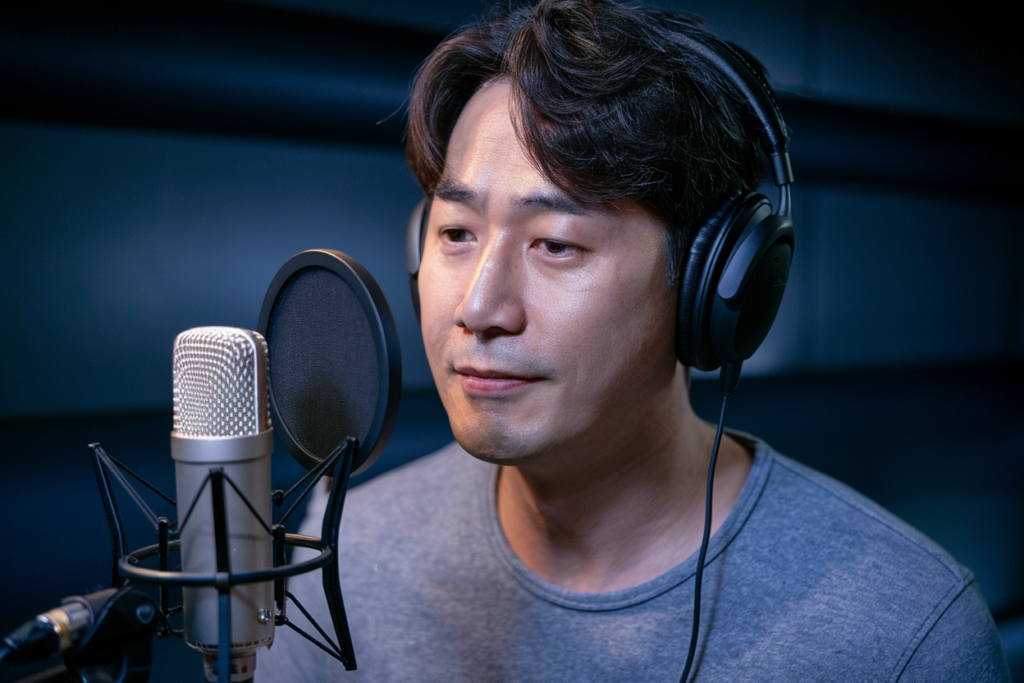Key Takeaways
- Cultural Hub: Seoul Korean is favored in media due to Seoul’s vibrant cultural scene, which seamlessly blends modernity and tradition, offering rich storytelling opportunities.
- Globalization Impact: The rise of K-pop and its international appeal has significantly increased demand for content featuring Seoul Korean, making it a preferred choice for media outlets.
- Digital Platforms’ Role: Streaming services prioritize Seoul Korean content because it resonates with diverse audiences, enhancing viewer engagement and marketability.
- Voice Talent Importance: Skilled voice actors who can convey the nuances of Seoul Korean are crucial for captivating narratives, adding emotional depth that engages audiences.
- Historical Significance: The standardization of Seoul Korean during the Joseon Dynasty established it as a common linguistic reference point, promoting clear communication across regions.
- Authenticity in Representation: Audiences crave authentic experiences; leveraging Seoul Korean allows creators to connect meaningfully with global viewers eager for genuine cultural representation.
Ever wondered why media seems to favor Seoul Korean over other dialects? It’s not just a coincidence. The vibrant culture, rapid globalization, and the rise of K-pop have made Seoul the epicenter of Korean media. This preference isn’t merely about language; it reflects a deeper trend in how stories are told and shared across the globe.
As you dive into this topic, you’ll discover how Seoul’s unique blend of tradition and modernity shapes its appeal. From catchy music to captivating dramas, there’s a reason audiences everywhere are tuning in. Understanding why media leans towards Seoul Korean can give you valuable insights into cultural dynamics and trends that influence what we watch and listen to today. Ready to explore?
Overview of Media Preferences
Media outlets increasingly prefer Seoul Korean due to several compelling reasons. First, the vibrant cultural scene in Seoul attracts global attention. The dynamic blend of modernity and tradition creates rich storytelling opportunities across various formats, from music to television dramas.
Second, globalization plays a critical role in amplifying this preference. As K-pop continues to dominate international charts, the demand for content featuring Seoul Korean surges. Audiences connect with the authenticity and energy that come through local dialects, making voiceovers in this style particularly appealing.
Third, the rising influence of digital platforms contributes significantly. Streaming services often prioritize content featuring Seoul Korean since it resonates well with diverse viewers. This trend not only enhances audience engagement but also increases marketability for advertisers seeking to tap into these demographics.
Additionally, high-quality voice talent is crucial in delivering compelling narratives that captivate audiences. Voice artists skilled in capturing the nuances of Seoul Korean can elevate projects by adding depth and relatability. Their ability to convey emotion effectively makes them invaluable assets within any media project.
As media preferences continue shifting towards Seoul Korean, understanding these trends becomes essential for anyone involved in content creation or distribution. Embracing this linguistic landscape opens doors to richer connections with global audiences eager for authentic experiences.
Cultural Significance of Seoul Korean
Seoul Korean holds a prominent place in both local and global contexts, serving as a cultural bridge that connects diverse audiences to Korea’s rich heritage. Its significance stems from historical evolution and contemporary influence on pop culture.
Historical Context
Seoul Korean emerged from the blending of various dialects throughout Korea’s history. As Seoul became the capital during the Joseon Dynasty, its language gained prominence. This centralization led to the standardization of Seoul Korean, making it the linguistic reference point for media and education. The adaptation of this dialect allowed for clear communication across regions, fostering unity while preserving distinct regional identities. Understanding this historical backdrop helps you appreciate why media outlets prioritize Seoul Korean; its established role positions it as an accessible medium for storytelling.
Influence on Pop Culture
Seoul Korean plays a pivotal role in shaping modern pop culture through music, film, and television. K-pop artists often use this dialect in their lyrics, creating catchy tunes that resonate with fans worldwide. The popularity of these artists amplifies demand for content produced in Seoul Korean, drawing international attention to dramas and variety shows that showcase authentic narratives.
Voice talent significantly enhances this cultural phenomenon. Skilled voice actors bring characters to life in animations or dubbed foreign films, adding emotional depth that captivates viewers. Their ability to convey nuanced expressions makes stories feel relatable and engaging—qualities crucial in today’s competitive entertainment landscape.
As digital platforms continue to grow, so does the reach of content featuring Seoul Korean. Audiences crave authenticity; they seek experiences that reflect true cultural elements rather than mere translations or adaptations. By embracing this vibrant dialect within your projects, you tap into a wellspring of creativity and connection with global audiences eager for genuine representation.
Recognizing these trends opens doors for innovative collaborations with voiceover talent who share your vision. Together, you can craft compelling narratives that not only entertain but also celebrate the unique qualities found within Seoul Korean culture.
Linguistic Features of Seoul Korean
Seoul Korean stands out for its unique linguistic characteristics, making it a preferred choice in media. This dialect provides a blend of modernity and tradition that resonates well with audiences.
Dialectical Variations
Seoul Korean exhibits fewer regional dialectical variations compared to other Korean dialects. While Korea has diverse dialects influenced by geography and culture, the clarity and uniformity of Seoul Korean make it accessible. The standardization of this dialect contributes to its effectiveness in voiceovers, ensuring that voice talent can deliver content that appeals broadly to listeners across different backgrounds. With less variation, you get consistent pronunciation and intonation, which helps maintain the authenticity needed for storytelling.
Standardization and Its Impact
Standardization plays a crucial role in the prominence of Seoul Korean. Historically adopted during the Joseon Dynasty as the official language, it paved the way for widespread acceptance in media today. This established common ground allows voice actors to connect with numerous audiences effortlessly. When content creators utilize standardized language in their projects, they enhance relatability and engagement levels among viewers or listeners. Voiceover artists benefit significantly from this standardization as it enables them to perform with confidence while adhering to recognized norms that appeal widely across different demographics.
Media Representation and Trends
Media representation of Seoul Korean reflects its growing influence in the entertainment industry. This dialect stands out for its cultural richness, making it a compelling choice for creators aiming to engage audiences worldwide.
Popularity in Television and Film
Seoul Korean dominates television and film production due to its clear communication style and recognizable sound. Viewers relate more easily to characters speaking this dialect, enhancing their overall experience. Iconic dramas and films showcase Seoul Korean, drawing international attention. For example, series like Crash Landing on You have captivated millions with relatable narratives delivered in this standard form of language. As a result, media producers increasingly seek voice talent proficient in Seoul Korean, ensuring they capture the essence of these stories while appealing to diverse audiences.
Role in Global Music Industry
The global music scene also embraces Seoul Korean, particularly through K-pop’s explosive rise. Artists utilizing this dialect connect with fans on a deeper level by incorporating authentic cultural elements into their music. The catchy beats paired with impactful lyrics resonate widely, driving demand for high-quality voiceovers that reflect this unique style. Producers look for skilled voice artists who can deliver engaging performances that embody the vibrancy of K-pop culture. When you listen to your favorite tracks or watch captivating music videos, it’s often the seamless blend of language and artistry that keeps you coming back for more.
By focusing on these trends within media representation, it’s clear why Seoul Korean garners such preference among creators looking to make an impact globally.
Conclusion
The preference for Seoul Korean in media is a testament to its cultural richness and global appeal. As you navigate the vibrant landscape of K-pop and dynamic storytelling, it’s clear that this dialect plays a crucial role in connecting with audiences worldwide. The blend of tradition and modernity allows creators to craft engaging narratives that resonate deeply.
With the rise of digital platforms prioritizing Seoul Korean content, there’s never been a better time to embrace its unique qualities. Engaging voice talent further enhances storytelling, making it relatable and impactful. As you explore media influenced by this dialect, you’ll witness how it bridges cultures and fosters genuine connections across borders.
Frequently Asked Questions
Why is Seoul Korean favored in media over other dialects?
Seoul Korean is preferred in media due to its vibrant culture, globalization, and K-pop’s rise. The blend of tradition and modernity enhances its appeal, making it relatable for global audiences through music and dramas.
How does globalization influence the use of Seoul Korean?
Globalization amplifies the demand for Seoul Korean content as K-pop gains popularity worldwide. Audiences seek authentic experiences, driving creators to produce more content in this dialect that resonates with diverse viewers.
What are the unique features of Seoul Korean?
Seoul Korean has fewer regional variations compared to other dialects, offering clarity and uniformity. This makes it effective for storytelling in media, allowing voice talent to engage a broad audience effectively.
How did Seoul Korean become standardized?
Seoul Korean emerged during the Joseon Dynasty when various dialects blended. Its centralization led to standardization as it became the capital’s language, making it accessible for storytelling while preserving regional identities.
Why is voice talent important in media representation?
High-quality voice talent adds depth and relatability to narratives. Skilled artists enhance engagement by delivering compelling performances that reflect the cultural richness of Seoul Korean and connect authentically with audiences.
How does K-pop impact the popularity of Seoul Korean?
K-pop significantly boosts interest in Seoul Korean by incorporating authentic cultural elements into music. This trend encourages demand for content featuring this dialect, leading creators to focus on engaging performances that resonate globally.
What role does media play in promoting Seoul’s culture?
Media acts as a bridge between diverse audiences and Korea’s rich heritage. By showcasing relatable stories through iconic dramas like “Crash Landing on You,” it highlights the cultural significance of Seoul Korean on a global stage.







